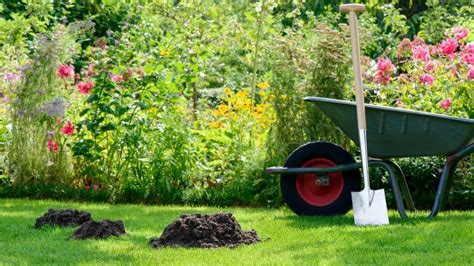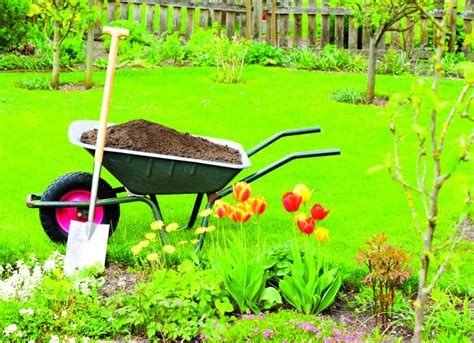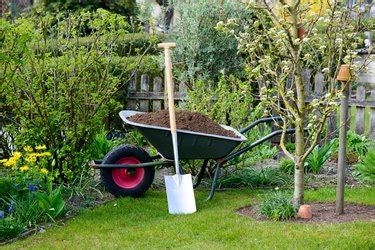Achieving a lush, green yard without relying on harsh chemicals is not only possible but also beneficial for both your family and the environment. Organic lawn care focuses on nurturing your lawn with natural methods, creating a vibrant, healthy landscape that’s safe for children, pets, and local wildlife. By implementing organic practices, you can enhance soil health, reduce the presence of weeds and pests, and promote sustainable growth that thrives year after year. In this article, we’ll explore top organic lawn care tips, covering everything from soil testing and natural fertilization techniques to eco-friendly weed control and proper mowing practices. Embrace these strategies, and you’ll be well on your way to cultivating a beautiful, eco-conscious yard.
shzow.com will explore this topic comprehensively.
1. Soil Testing and Improvement
The foundation of a healthy, organic lawn begins with understanding your soil. Soil testing is a crucial first step, as it reveals the pH level, nutrient content, and overall composition of your soil. By conducting a soil test, you can determine what your lawn needs to thrive organically. Most local agricultural extensions or garden centers offer soil testing services, providing detailed results and recommendations.
Once you have your soil test results, you can make necessary improvements. If the pH is too low (acidic) or too high (alkaline), amendments like lime or sulfur can help balance it. Additionally, enhancing soil structure with organic matter, such as compost, boosts its ability to retain moisture and nutrients. Incorporating organic fertilizers like bone meal or fish emulsion adds essential nutrients without synthetic chemicals. Regularly aerating the soil also promotes root growth and improves water infiltration. By investing time in soil testing and improvement, you lay the groundwork for a lush, resilient lawn that naturally

2. Natural Fertilization Techniques
Natural fertilization is a key component of organic lawn care, providing essential nutrients to your grass without relying on synthetic chemicals. One of the most effective natural fertilizers is compost, a rich source of organic matter that enhances soil structure and nutrient content. By spreading a thin layer of compost over your lawn, you introduce beneficial microorganisms that break down organic material and release nutrients slowly, promoting steady, sustainable growth.
Another natural option is using organic fertilizers like bone meal, blood meal, or fish emulsion. These products are derived from natural sources and provide important nutrients such as nitrogen, phosphorus, and potassium. They help your grass grow thicker and greener while supporting healthy root development. It’s essential to apply these fertilizers according to the specific needs of your soil, as determined by your soil test results.
Grass clippings can also serve as a natural fertilizer when left on the lawn after mowing. They decompose quickly, returning valuable nutrients back to the soil. Additionally, applying compost tea—a liquid solution made from compost steeped in water—can boost the microbial life in your lawn, further enhancing its health and resilience. By choosing natural fertilization techniques, you nourish your lawn while protecting the environment.

3. Eco-Friendly Weed Control
Maintaining a weed-free lawn organically requires a combination of prevention and targeted control methods that don’t harm the environment. One of the most effective strategies is to promote a dense, healthy lawn that naturally crowds out weeds. Regular mowing, proper fertilization, and consistent watering all contribute to a strong lawn that leaves little room for weeds to take root.
For existing weeds, manual removal is the best eco-friendly approach. Hand-pulling weeds or using a weeding tool ensures that you remove the entire root, preventing regrowth. For larger areas, consider using a natural herbicide made from ingredients like vinegar, salt, and soap. These homemade solutions can effectively kill weeds without introducing harmful chemicals into your lawn.
Mulching around garden beds and borders also helps suppress weed growth by blocking sunlight from reaching the soil. Organic mulches, such as wood chips or straw, not only control weeds but also improve soil health as they decompose. By using these eco-friendly weed control methods, you can maintain a lush, organic lawn.

4. Organic Pest Management
Organic pest management focuses on preventing pests naturally and addressing infestations without harmful chemicals. Start by encouraging beneficial insects like ladybugs, lacewings, and ground beetles, which prey on common lawn pests such as aphids and grubs. Planting flowers like marigolds and daisies can attract these helpful predators to your yard.
Maintaining a healthy lawn is another key to organic pest control. Proper watering, mowing, and fertilization strengthen your grass, making it less susceptible to pest damage. If pests do appear, consider using natural treatments like neem oil or insecticidal soap, which target specific pests without harming beneficial insects or the environment.
You can also introduce nematodes—microscopic worms that naturally control grubs and other soil-dwelling pests—into your lawn. Regularly inspect your yard for signs of pests and address issues promptly to prevent them from spreading. With these organic pest management techniques, you can protect your lawn while keeping it safe for your family and pets.
5. Proper Mowing Practices
Proper mowing practices are essential for maintaining a healthy, organic lawn. The first rule is to mow high—set your mower blades to a height of about 3 to 4 inches. Taller grass develops deeper roots, which helps the lawn withstand drought, resist pests, and outcompete weeds. Mowing too short weakens the grass and leaves it vulnerable to these threats.
It’s also important to mow regularly, but not too often. Aim to remove no more than one-third of the grass blade at a time. This approach prevents stress on the grass and ensures a healthier lawn. If you let the grass grow too long between mowings, cutting it back drastically can shock the plants, leading to yellowing and weak growth.
Using sharp mower blades is another key aspect of proper mowing. Dull blades tear the grass, leaving jagged edges that make the lawn more susceptible to disease. Sharpen your mower blades regularly to ensure a clean cut every time.
Lastly, leave the clippings on the lawn after mowing. These clippings act as a natural fertilizer, returning valuable nutrients to the soil as they decompose. By following these proper mowing practices, you can maintain a lush, green lawn that’s resilient and naturally healthy.
6. Watering Strategies for Organic Lawns
Effective watering strategies are crucial for sustaining a healthy, organic lawn. The goal is to encourage deep root growth, which makes your grass more resilient to drought and disease. To achieve this, water your lawn deeply but infrequently. Instead of shallow, daily watering, aim for one to two deep watering sessions per week, providing about 1 inch of water each time. This approach helps water penetrate the soil, reaching the roots and encouraging them to grow deeper.
The timing of your watering sessions is also important. Early morning is the best time to water, as cooler temperatures reduce evaporation, allowing more water to soak into the soil. Avoid watering in the evening, as this can leave your lawn damp overnight, increasing the risk of fungal diseases.
Another key strategy is to adjust your watering based on weather conditions. During rainy periods, reduce or skip watering to prevent over-saturating the soil, which can lead to root rot and other issues. Conversely, in hot, dry weather, you may need to increase watering slightly to maintain healthy growth.
Lastly, consider using a soaker hose or drip irrigation system to deliver water directly to the soil, minimizing waste and ensuring even coverage. With these watering strategies, your organic lawn will thrive in any season.
7. Benefits of Compost and Mulch
Compost and mulch offer numerous benefits for an organic lawn, contributing to its health and sustainability. Compost, made from decomposed organic materials, enriches the soil by adding essential nutrients and improving its structure. When spread over your lawn, compost enhances soil fertility, promotes beneficial microbial activity, and boosts water retention, leading to stronger, more resilient grass. This natural amendment also helps reduce the need for synthetic fertilizers.
Mulch, on the other hand, provides a protective layer on the soil surface. Organic mulches, such as wood chips or straw, help retain moisture, regulate soil temperature, and suppress weed growth. As mulch decomposes, it adds organic matter to the soil, further improving its health and fertility.
Both compost and mulch contribute to a more sustainable lawn care routine by reducing waste and minimizing the need for chemical inputs. Incorporating these materials into your lawn care practices supports a greener, healthier lawn while promoting environmental stewardship.
Embracing organic lawn care practices leads to a vibrant, healthy lawn that benefits both your family and the environment. By focusing on soil testing, natural fertilization, eco-friendly weed control, organic pest management, proper mowing, and effective watering strategies, you create a thriving yard that’s resilient and sustainable. Incorporating compost and mulch further enhances soil health and reduces the need for synthetic chemicals. These practices not only improve the beauty of your lawn but also contribute to a greener planet. With these organic tips, you can enjoy a lush, green yard that’s naturally maintained and environmentally friendly.
shzow.com
